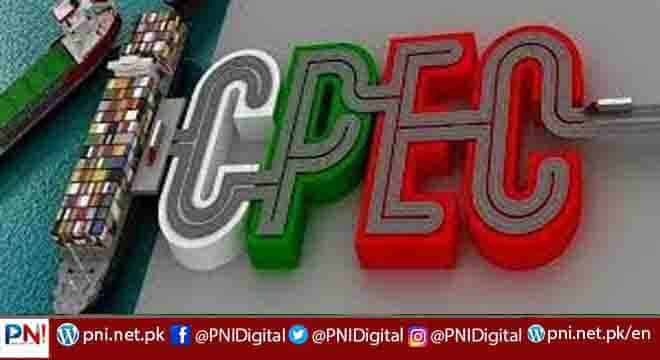ISLAMABAD December 23 (Online): Industrial Cooperation chapter of CPEC is all-inclusive in nature and open for third country participation. All SEZs [Special Economic Zones], including CPEC SEZs, are open for investment to all investors, whether domestic or foreign, with equal treatment, said Minister of State and Chairman of Board of Investment (BOI) of Pakistan Mr Azfar Ahsan.
He was speaking at an international conference titled “CPEC: Challenges, Opportunities, and the Way Forward” at the Institute of Regional Studies (IRS) here on Thursday.
The BOI Chairman highlighted that necessary infrastructure and utilities as well as special incentives under an effective legal framework will be provided to all investor from all over the world to invest in the SEZs established under CPEC. He added that Pakistan had a total of 22 notified SEZs but only four of them, i.e., Rashakai in KP, Allama Iqbal Industrial City in Punjab, Bostan in Balochistan, and Dhabeji in Sindh, were in an advance stage of development.
He specifically mentioned the electric vehicle, mobile manufacturing, and construction sector policies, as well as other incentives for the SEZs as government’s steps for attracting foreign direct investment.
Ahsan lauded the overwhelming response to the recently held CPEC Business-to-Business (B2B) Industrial Investment Conference for Punjab. He said that the over six hundred delegates to the conference included around seventy Chinese investors.
He elaborated that the conference featured several B2B sessions on an array of areas of cooperation. He said that while the first phase of CPEC required a leading role for the governments, the second phase called for an enhanced role of industrialists, private sector, and business community from both the countries.
Earlier, in his opening remarks, President IRS Ambassador Nadeem Riyaz stated that CPEC was inherently a representation of connectivity in all realms of development.
He added that over the years Pakistan had directed its focus towards ensuring investor-friendly policies and to come up with legal frameworks that enabled a smooth trajectory to sustainable development. In that, he maintained, the primary focus of the government had been on ensuring that the investments and projects planned under CPEC were successfully materialised.
Pakistan’s former ambassador to China Ambassador Masood Khalid appreciated the developments in the power and transport infrastructure sectors under CPEC. Sharing data from the Ministry of Planning and Development, Ambassador Khalid said that 46 projects under CPEC had either been completed or were near completion with net Chinese investment of $25 billion.
He added that 5,320 MW of electricity had been added to Pakistan’s national grid with the completion of power projects like Sahiwal and Port Qasim in record time. The Chief Executive Officer (CEO) of the Khyber Pakhtunkhwa Board of Investment and Trade Hassan Daud Butt emphasised the importance of CPEC for the economic development and prosperity of Pakistan.
He said that Pakistan needed to create 1.3 million additional jobs on average every year and CPEC had the potential to do exactly that.
He added that CPEC was opening the doors of new business opportunities and could make the country an international business destination.
Follow the PNI Facebook page for the latest news and updates.









